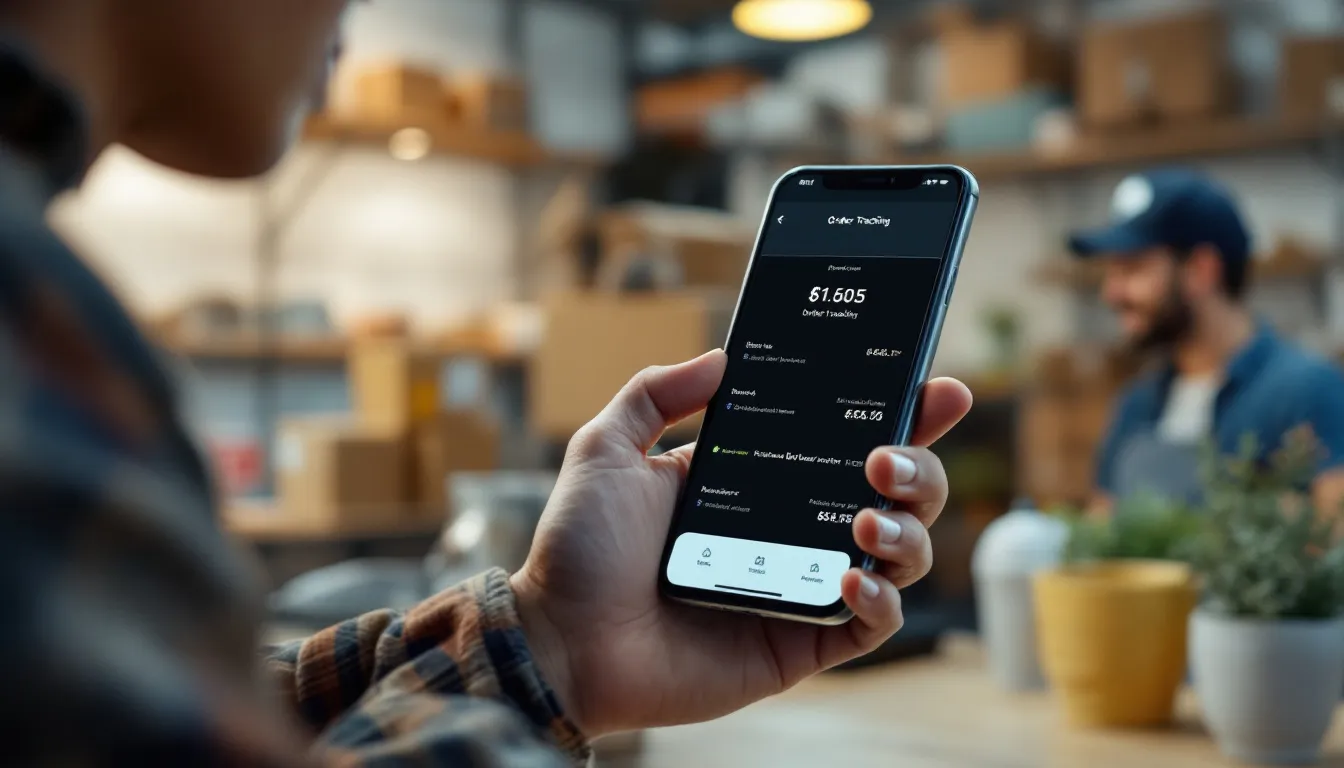Enhancing Retail & E-commerce with RCS Business Messaging for Order Tracking & Delivery Updates

In an ever-evolving digital landscape, the need for effective communication in retail and e-commerce has never been more critical. One of the breakthrough technologies transforming how businesses engage with customers is RCS Business Messaging. This article delves into the intricacies of RCS Business Messaging, particularly in the context of order tracking and delivery updates, revealing its potential to revolutionize customer experiences.
Understanding RCS Business Messaging
Rich Communication Services (RCS) Business Messaging is revolutionizing the way brands interact with their customers. Unlike traditional SMS, RCS supports rich media, interactivity, and enhanced customer engagement. With features like carousels, images, buttons, and quick replies, it offers a dynamic platform for businesses to communicate detailed information effectively.

The Basics of RCS Business Messaging
RCS is a protocol used to send rich messages over the internet rather than the traditional SMS network. It provides enhanced personal engagement channels through which businesses can deliver visually attractive content directly to customers’ messaging apps. This technology is supported by major mobile carriers, making it accessible to a significant number of users globally.
From personalized promotions to vital updates, RCS enables brands to reach customers with tailored messages that drive action. This is not just a notch up from SMS; it’s a complete shift in how customer interactions are perceived and processed. The ability to incorporate interactive elements means that brands can create a more immersive experience, allowing customers to engage with content in a way that feels natural and intuitive.
Benefits of RCS Business Messaging in Retail and E-commerce
The benefits of RCS Business Messaging are multifaceted. For retail and e-commerce, customer engagement can significantly enhance brand loyalty and conversion rates. Here are some compelling advantages:
- Enhanced Visual Engagement: With support for images and multimedia, RCS allows businesses to provide a richer context to their messages, making them more engaging.
- Interactive Elements: Buttons and quick reply options facilitate immediate actions, leading to higher response rates.
- Improved Analytics: Businesses can track engagement and outcomes more effectively, which assists in refining marketing strategies.
By leveraging these benefits, brands can elevate their customer service and operational efficiency, paving the way for a more connected retail experience. Furthermore, RCS Business Messaging can also enhance the customer journey by providing timely updates about order confirmations, shipping notifications, and personalized product recommendations. This level of communication not only keeps customers informed but also fosters a sense of trust and reliability between the brand and its audience.
Additionally, RCS allows for the integration of chatbots and AI-driven solutions, enabling businesses to automate responses and provide instant support. This capability is particularly valuable in e-commerce, where customers often seek immediate answers to their inquiries. By combining the power of RCS with intelligent automation, brands can ensure that they are available to assist customers around the clock, thereby enhancing the overall shopping experience and driving higher satisfaction rates.
The Role of RCS Business Messaging in Order Tracking
Order tracking has evolved from a simple status update to a comprehensive experience that can significantly influence customer satisfaction. Here, RCS Business Messaging plays a crucial role in ensuring customers are kept informed at every stage of their order.
How RCS Business Messaging Improves Order Tracking
With RCS, businesses can send regular updates that go beyond traditional notifications. Imagine receiving an order confirmation that includes a live map tracking your delivery in real-time. Such implementations help customers feel more in control and up-to-date about their purchases.
RCS also allows brands to share not just one-off updates but continuous conversations. This ongoing dialogue can cover everything from the processing stage to the final delivery, providing a seamless customer journey that enhances trust and reliability. Furthermore, the rich media capabilities of RCS enable businesses to incorporate images, videos, and even interactive buttons into their messages, making the experience more engaging. For instance, a customer could receive a message featuring a photo of their package, along with a button to provide feedback on their experience thus far. This not only keeps customers informed but also fosters a sense of connection with the brand.
The Impact of Real-Time Order Tracking on Customer Satisfaction
Real-time order tracking facilitated by RCS enhances customer satisfaction dramatically. Studies show that transparency in the delivery process leads to reduced anxiety and increased trust in the brand. Customers appreciate knowing when to expect their items and can plan their schedules accordingly.
Moreover, proactive updates about delays or unexpected changes further reinforce a brand’s dedication to customer service. When handled correctly, this level of communication can transform a challenging situation into a redeemed customer experience. In addition, RCS can facilitate two-way communication, allowing customers to ask questions or express concerns directly through the messaging platform. This immediacy not only resolves issues faster but also empowers customers, making them feel valued and heard. As a result, brands that leverage RCS for order tracking not only improve their operational efficiency but also build lasting relationships with their customers, ultimately driving loyalty and repeat business.
Utilizing RCS Business Messaging for Delivery Updates
In conjunction with order tracking, delivery updates play a vital role in the customer journey. Effectively managing this communication not only informs customers but also enhances their overall experience with the brand.

The Importance of Timely Delivery Updates
Providing timely delivery updates is crucial in minimizing customer uncertainty. When customers are kept informed of every stage of their delivery—be it packing, shipment, or expected arrival—they feel valued and respected. This helps cultivate a strong relationship with the brand.
Timely communication reduces the volume of inquiries directed at customer service, allowing teams to focus on resolving more complex issues. This efficiency boosts overall satisfaction on both ends. Moreover, proactive updates can preemptively address potential delays, allowing customers to adjust their plans accordingly. This transparency fosters trust, as customers appreciate brands that keep them in the loop and demonstrate accountability.
How RCS Business Messaging Streamlines Delivery Updates
RCS Business Messaging streamlines delivery updates by centralizing communications and making them accessible directly in the messaging app. Updates can include a delivery window, tracking links, and even options for rescheduling or changing the delivery address.
This functionality not only improves the convenience for customers but also minimizes logistical complications for businesses. The more streamlined the communication, the better the service experience becomes. Additionally, RCS allows for rich media content, such as images of the package or delivery personnel, which can enhance the customer's anticipation and excitement. By integrating interactive elements like buttons for immediate feedback or quick actions, brands can create a more engaging dialogue with their customers, transforming a simple delivery notification into a dynamic interaction that feels personal and responsive.
Implementing RCS Business Messaging in Your Business
Despite the numerous advantages of RCS Business Messaging, implementing it requires careful planning and strategic execution. Organizations must navigate the complexities to fully leverage its potential.

Steps to Integrate RCS Business Messaging
Integrating RCS into your business operations can be a structured process. Here are essential steps to consider:
- Assess Your Current Systems: Understand how RCS can fit into your existing communication strategy and what systems are in place.
- Choose the Right Provider: Partner with a trusted RCS provider who can offer the technology and support you need.
- Develop a Content Strategy: Create engaging and informative content that will resonate with your customers.
- Test Before Launch: Run a pilot program to gather feedback and make necessary adjustments.
- Launch and Iterate: Roll out the service and continuously optimize based on customer interactions and feedback.
Following these steps can ensure a systematic integration, maximizing the benefits of RCS for your retail or e-commerce environment. It is also important to consider the training of your staff. Ensuring that your team understands how to utilize RCS effectively can significantly impact the success of your messaging campaigns. Providing comprehensive training sessions can empower your employees to engage with customers more effectively, ultimately leading to improved customer satisfaction and loyalty.
Overcoming Challenges in RCS Business Messaging Implementation
While the potential of RCS is clear, companies may face challenges during implementation. One major concern is ensuring compatibility with various devices and operating systems. Not all users may have RCS-capable messaging apps, which could limit reach.
Additionally, there is the challenge of managing diverse customer expectations. Some customers may prefer traditional communication methods, while others are eager to engage through RCS. Understanding your audience and gradually educating them on the benefits of RCS is essential for a smooth transition. This could involve creating informative resources, such as FAQs or tutorial videos, that explain how RCS enhances the customer experience with rich media, quick replies, and interactive elements. Furthermore, leveraging analytics can help identify segments of your customer base that are more inclined to adopt new technologies, allowing for targeted outreach and engagement strategies.
The Future of Retail & E-commerce with RCS Business Messaging
The future of retail and e-commerce is poised for transformation with the widespread adoption of RCS Business Messaging. As businesses continue to innovate and adapt to customer needs, RCS will be at the forefront of this evolution.
Predicted Trends in RCS Business Messaging
Moving forward, we can expect to see several key trends emerging in RCS Business Messaging:
- Increased Personalization: The ability to gather data and analyze customer behavior will drive more personalized interactions.
- Wider Adoption Among Brands: As visibility around RCS grows, businesses across various sectors will begin to embrace it for enhanced customer communication.
- Integration with AI: The incorporation of Artificial Intelligence may facilitate chatbots capable of handling common inquiries within RCS, ensuring 24/7 engagement.
Each of these trends points toward a more connected and responsive retail ecosystem that prioritizes customer engagement and satisfaction. Furthermore, as RCS evolves, we may witness the introduction of rich media capabilities, allowing brands to share dynamic content such as videos, images, and interactive elements directly within messaging threads. This shift could lead to more engaging marketing campaigns that resonate with consumers on a deeper level, ultimately driving conversion rates and enhancing brand loyalty.
Preparing Your Business for the Future of RCS Messaging
To fully embrace the future of RCS messaging, businesses need to remain agile. Investing in training for staff to understand and manage RCS communications will be essential. Furthermore, keeping an eye on emerging technologies will allow organizations to adapt and innovate continually.
As you build your strategy around RCS, consider your long-term goals and how they align with evolving consumer expectations. The brands that succeed will be those that prioritize adaptation and anticipate industry trends. Additionally, establishing robust feedback mechanisms will be crucial; by actively soliciting customer input on their messaging experiences, businesses can refine their approaches and ensure that their communications are not only effective but also welcomed by their audience. This iterative process of improvement will help brands stay ahead of the curve in an ever-changing digital landscape.
In conclusion, RCS Business Messaging offers retail and e-commerce companies a powerful tool for enhancing order tracking and delivery updates. By understanding its capabilities and implementing it effectively, brands can foster deeper relationships with their customers, leading to increased loyalty and improved overall satisfaction.
Take Your Retail & E-commerce Communication to the Next Level with nativeMsg
Ready to elevate your customer engagement with the power of RCS Business Messaging? nativeMsg, the RCS Business Messaging Creator, is here to transform your text messaging into interactive experiences that captivate and convert. Say goodbye to plain text and hello to rich, interactive conversations that drive sales and enhance customer satisfaction. Don't miss out on the opportunity to boost your brand loyalty and operational efficiency. Get Started today and see the difference for yourself!
